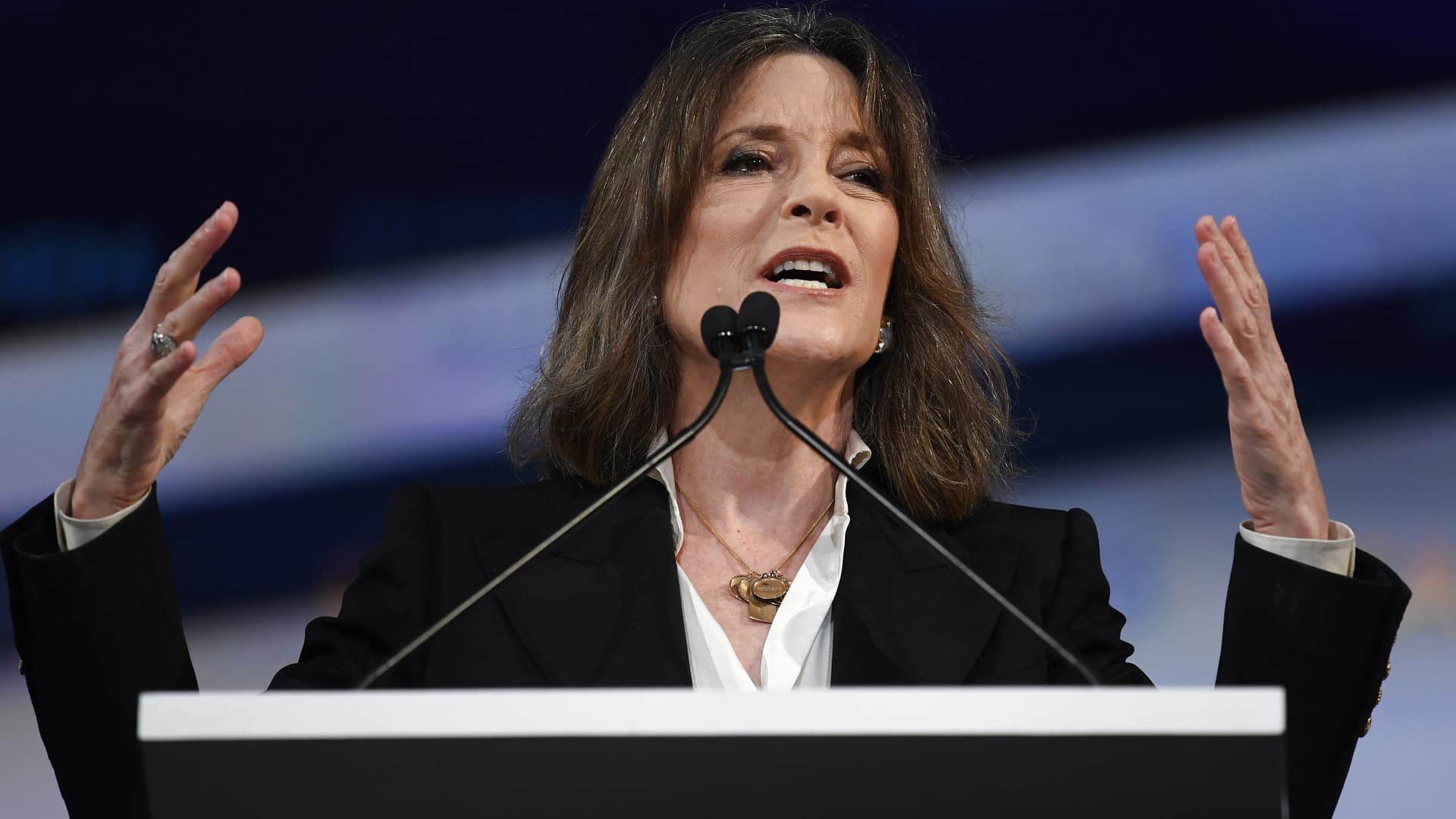Author Marianne Williamson announced her exit from the 2024 presidential race.
“As of today we are suspending our campaign,” she wrote Wednesday evening in a message to supporters.
“While the level of our failure is obvious to all, a level of success is real nonetheless,” she wrote. “We articulated deeper, more authentic truths than those regularly acknowledged by the political establishment.”
Williamson was one of few Democratic challengers to incumbent President Joe Biden, along with House Rep. Dean Phillips, D-Minn. She and Phillips both consistently polled with single-digit margins.
Williamson won roughly 2% of the vote in South Carolina’s Democratic primary last weekend.
The self-help guru campaigned on an anti-establishment platform, looking to “Disrupt the System,” according to one of her slogans. This was her second presidential bid, after a failed primary campaign in 2020.
Williamson, 71, said that she was running for president to “course-correct” the damage of former President Donald Trump and prevent him from winning a second term.
But the Texas native mainly entered the race to be an alternative to Biden, during a time when early polling showed the president lagging on key issues like the economy and losing support among core Democratic voting blocs, like Latino voters.
Biden’s perceived weak spots created an opportunity for candidates like Williamson and Phillips to campaign primarily as Biden substitutes.
“Biden will not win. I will,” Williamson wrote in an X post hours before the results of the Nevada Democratic primary on Tuesday.
As the primary season gor underway, it quickly became clear that Williamson’s enthusiasm and often spiritual message did not resonate with voters any more this year, than it had in 2020.
Biden clinched victories in New Hampshire as a write-in candidate and in South Carolina’s primary, squeezing Williamson even farther into the margins of the field.
Her best shot at picking up votes was in New Hampshire’s Democratic primary, where Biden’s name was not officially on the ballot. New Hampshire voters pride themselves on their independence from the strict two-party system, and outsider candidates tend to fare better in the Granite State than they do anywhere else.
Despite the structural advantages New Hampshire offered a candidate like Williamson, ultimately she secured just 4% of Democratic primary votes.
“While we did not succeed at running a winning political campaign, I know in my heart that we impacted the political ethers,” Williamson wrote Wednesday.
“We spoke for those most ignored in America today and whose wounds are most in need of healing. I wish I could have reached them,” she wrote.





